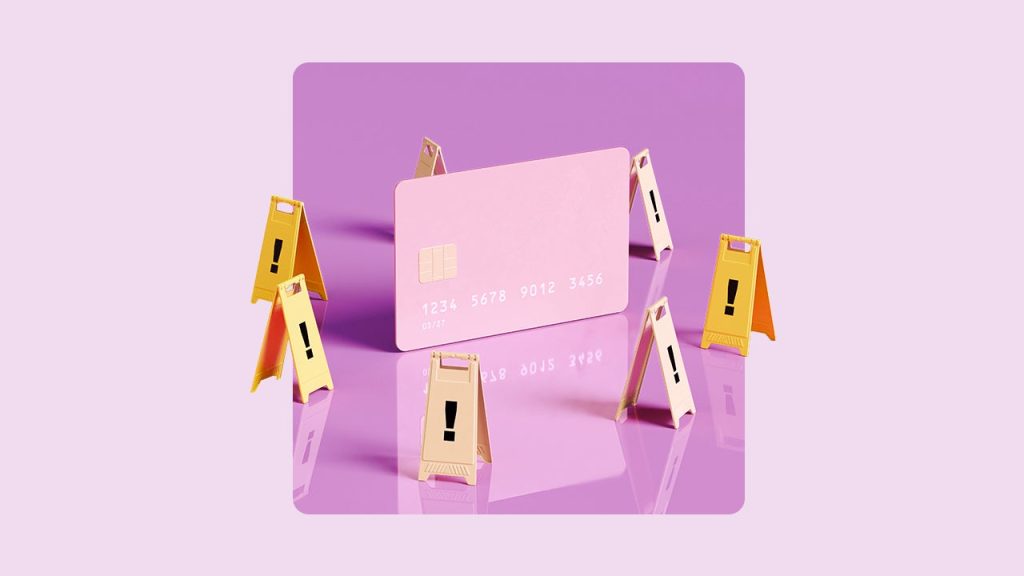Robb Sommerfeld used a popular business credit card to help manage finances at National Center for Craftmanship (NCC), a nonprofit where he serves as an executive director — until the bank suddenly closed the account.
The sudden account closure put Sommerfeld and his organization in a tough spot, as the credit card played a key role in the regular payment of vendors. Sommerfeld spent nine hours in total talking to multiple people at the bank, over the phone and in person. The account was closed due to what he believed was no error of his own.
When he was able to get the account reopened, he discovered a new (and lower) credit limit. He was unable to get the issuer to restore the credit limit he’d had before the account was closed, which he said left him scrambling for funds on expenses he previously used the card to cover.
As Sommerfeld and many others know, it can be extremely frustrating to feel stuck in a customer service loop trying to get your credit card company to satisfactorily address a problem or concern.
I wanted to learn what to do in such situations and spoke with Chi Chi Wu, senior attorney at the National Consumer Law Center. Here’s what you can do if you find yourself stuck at an impasse with your credit card issuer.
When your credit card issuer isn’t in your corner
Sommerfeld was approved for a business credit card in January 2023 for his nonprofit. The organization, located in Greeley, Colorado, provides training through programs like Deconstruct, which teaches high-school students construction by taking down buildings.
The nonprofit depended on the credit card to pay the vendors removing the materials. The organization then would get paid by the client or receive a grant from the state to pay off the card. Sommerfeld worked hard to maintain a good relationship with the issuer and increase the credit limit, which started at under $5,000 and grew to $18,000 in about five months.
Then, in September 2023, the bank suddenly closed the account.
After multiple conversations with the issuer’s account services, Sommerfeld found that the nonprofit’s name on the account had been changed to the NCC’s website address. No one could explain how this change had occurred.
“Over the whole course of this ordeal, I was keeping track of… how many people I had to talk to, and that came up to 16 different people,” Sommerfeld says.
The bank declined to correct the name on the account and suggested Sommerfeld reapply for the card. He did. Unfortunately, the credit limit from the old account hadn’t been transferred over — another thing the issuer declined to do.
What rights do you have?
There unfortunately might be little that a credit card holder can do in situations like Sommerfeld’s, according to Wu. It’s at the bank’s discretion whether it continues to provide you with an open line of credit. Unless the account is shut down for an illegal reason, such as discrimination, you don’t really have the “right” to keep it open.
Under federal law, you also have legal protections against:
- Unauthorized use, such as when somebody steals your credit card or uses your credit card number without your permission;
- Billing errors, such as when you never receive the product or service you purchase or get charged the wrong amount;
- Charges for low-quality or faulty items (under certain conditions).
If your issue doesn’t fit any of these scenarios, you may have limited options for support.
Will the CFPB help?
The CFPB is a government agency that oversees the consumer finance industry with the goal of protecting everyday Americans from unfair, deceptive and abusive practices.
The CFPB has provided helpful recourse for cardholders who experience a range of issues with their cards and accounts. In 2023 alone, the bureau received 70,000 credit card complaints — a 38-percent jump from 2022.
Unfortunately, the CFPB’s ability to continue helping consumers is recently under question, as the Trump administration has sought to diminish it along with many other government agencies.
The agency’s portal for submitting complaints is still operational, but it’s not clear whether complaints are being processed. After all, the contract with the vendors who managed the consumer response function was canceled, according to Wu.
“It’s nuts,” Wu says. “I can’t tell you exactly what’s going to happen or how to proceed, because the Trump administration has gutted the most important consumer protection agency for credit cards.”
What else can you do?
If you’re trying to resolve the problem with your issuer, and it’s refusing to help you, there are a few solutions you can consider.
Appeal the bank’s decision
If you dispute something on your credit card bill, and your credit card issuer finds there’s no error after an investigation, you can appeal the decision. You can do so within the period the issuer gives you for payment or 10 days of getting the explanation, whichever is later according to the Federal Trade Commission (FTC).
To appeal, write to the issuer explaining that you won’t pay because you want to continue disputing the billing error. Note, however, that at this point, the issuer can send your account to collections and report it as delinquent, with a note that you’re disputing the error.
Report to the FTC
When exercising your legal rights with the issuer doesn’t go anywhere, you can report it to the FTC. The agency itself doesn’t resolve consumers’ complaints. It shares your report with more than 2,800 law enforcers who can use it to bring cases against fraud and poor business practices.
Reach out to your state for help
Certain states have their own agencies that protect consumers. This might be another avenue for you to explore.
For example, Californians can reach out to the Department of Financial Protection and Innovation (DFPI). The agency investigates claims of abuse against financial service providers, such as banks, credit unions, nonbank lenders and others. The DFPI also has a portal that allows California residents to submit a complaint.
Another example is the Department of Financial Services in New York, which regulates banks and financial institutions, among other types of organizations. The agency’s website provides an online Consumer Complaint Form.
Alternatively, you can reach out to your state’s attorney general. Check their website to see how to go about filing a complaint in this case.
Pursue legal action
If you’re in a dire situation and believe your card issuer has broken the law, you can see if an attorney will take your case. Consumer protection attorneys provide defense for clients experiencing losses from companies’ deceptive or unlawful practices. They work on a contingency basis, meaning they get paid only if they win or settle. In many cases, if the defendant loses, they’re responsible for the plaintiff’s legal fees.
Say goodbye to your issuer
When Sommerfeld realized his bank wouldn’t restore his original credit limit, he contacted a different issuer. The new issuer gave him a credit limit of $10,000, which within weeks increased to $18,000.
It should go without saying that you don’t have to stay with a financial provider that has wronged you. Sometimes, the easiest solution is to take your business elsewhere.
The bottom line
When your credit card issuer lets you down and provides no help, it can be incredibly stressful. And with the matter of the CFPB’s existence in flux, where do you go for help? It’s a vulnerable position to be in, but you still have options you can explore.
And don’t forget: your relationship with your financial institutions is a two-way street. There are plenty of excellent credit cards to choose from. Exercise your right to take your business where it’s appreciated.
Read the full article here









